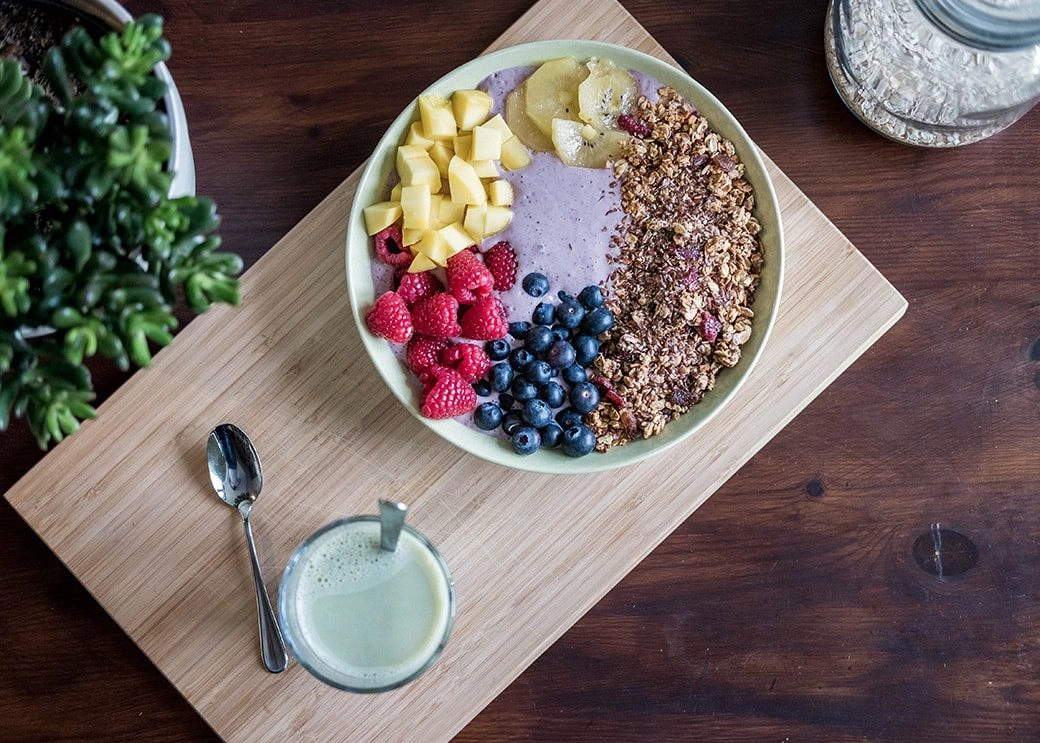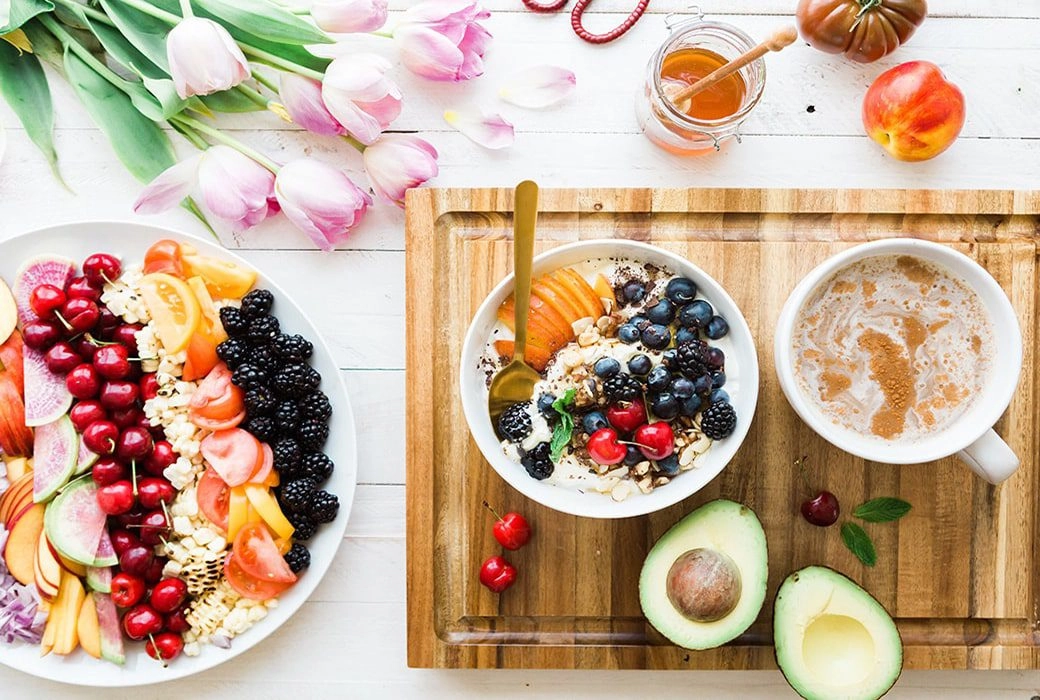We all want to eat healthier. Whether it’s for weight loss, internal health, or other reasons, having a healthy diet is beneficial for all types of reasons – and if we’re being honest, we can all do better!
Of course, it’s also important to remember that maintaining healthy eating habits is much easier said than done. As is the case with developing any new habit, it takes time, diligence, practice, and even a bit of research to eat healthy. Depending on where you start out, it may be easier or harder for you as well. For example, if you’re eating carbs, sugar, and unhealthy fats for most meals, it might take more time and practice than it would for someone who is only looking to make minor improvements to their diet.
No matter where you are in your healthy eating journey, there are a few common practices that work for many people looking to improve their diet. Mostly, it involves integrating healthy food groups into your diet in different ways, and going easy on yourself when you slip up. Read through below to see if you can start integrating some of these into your new, healthy lifestyle!
Substitute Fruits and Veggies
We’ve been belittled about this since we were kids. “Eat your fruits and vegetables!,” our parents would say. But sometimes, it just seems easier (or tastier..) to forego those nutritious foods for carbs, fats, and other food groups.
Instead of trying to add an extra side dish of vegetables to dinner, or eat a piece of fruit as a snack every day, an easier, and overall better way to integrate fruits and vegetables into your diet is to actually substitute those carbs and fats for fruits and veggies in your main meals every day.
This means spiralized squash instead of spaghetti. Fruit sorbet instead of ice cream. Riced (or mashed) cauliflower instead of white rice or mashed potatoes. The list goes on. There are plenty of healthy recipes out there that can give you ideas on how to do this.
The key benefit of substituting fruits and vegetables, instead of just adding them into your diet, is that you get a double dose of health by simultaneously reducing harmful dietary elements, and adding new, healthy ones.
Of course, adding them into your diet is better than nothing, so if that’s where you want to start, go for it! But over time, try gradually substituting these nutritious foods into your everyday dishes for maximum health benefits.
Integrate More Fiber and Protein
It’s also important that your body is getting enough fiber and protein to keep it going. As we mentioned before, societally, we are somewhat dependent on carbs, fats, sugars, and other incredibly unhealthy food groups to give us energy throughout the day. But eating these kinds of foods all day every day can take a serious toll on our well-being on every level. This includes blood sugar, weight, energy levels, mood, and more.
Fiber and protein are important because these two elements regulate our system and promote healthy bodily function. Fiber helps the digestive system, and also regulates carbohydrate breakdown, meaning the energy you get from any given carb will last longer and won’t spike your blood sugar if it is integrated with fiber.
Most people know that protein builds muscle, which is a great and important element of a healthy diet. But it also keeps you fuller for a longer amount of time than carbs or sugars, allowing you to naturally regulate how much you eat during the day and not eat more than your body needs. With carbs and sugars, they can be somewhat addictive and not very filling, so you can eat them all day long without feeling full and just loading your body up with empty calories.
Here are a few easy ways to integrate fiber and protein into your diet:
- Breakfast: Eggs, turkey bacon (less fat than regular bacon, still tastes delicious), and whole wheat or multigrain toast
- Lunch: Whole wheat wrap (instead of a sandwich)
- Dinner: Try a Spanish dish with brown rice and beans! Beans have a surprising amount of protein and fiber, so they’re a go-to substitution for most vegetarians/vegans when they need more protein or fiber in their diets
Reduce Your Sugar Intake
Another important healthy eating habit to try is reducing your overall sugar intake, or at the very least, switching to balanced sugars such as fruits, yogurt, etc. A diet high in sugar can wreak havoc on your body, causing weight gain, mood swings, overeating, and other unhealthy effects. It’s a sneaky ingredient, too. Do you eat relatively healthy, but still enjoy a soda every day with lunch and dinner? Maybe you eat perfectly well all day, but indulge in ice cream or late-night desserts often.
All of this, like most dietary elements, are absolutely fine in moderation. But if they become daily habits, that’s when they can start affecting your body. Drink more water, and use substitutions to curb those cravings. Try yogurt instead of ice cream, fruit instead of soda, tea instead of wine, and save those indulgences for once or twice per week if you can. Your body will thank you!

The “21 Day Challenge”
Wondering how you’re going to stick with these new healthy eating habits? It’s harder than it seems (especially the sugar intake). There’s also a lot of false information out there about “forming a habit in 21 days,” this idea that it takes our brains 21 days of repeating a task to make it habitual. Unfortunately, this just isn’t true, and forming a habit is a bit more complicated than that, especially a dietary habit:
First, you go through a bit of an optimistic period. You find all of these new ways to eat healthy and it’s exciting and new, and you’re energized and motivated to get going! But then, within a few days or weeks, it starts to get a bit old, and you may miss your old, not-so-healthy eating habits. Depending on how committed you are to following through with developing these healthy eating habits, you’ll need to fight through this phase and stay strong in order for healthy eating to truly become part of your lifestyle long-term. It’s like the “hump day” of habit-forming. But once you get to Friday, you’re good to go!
It’s also important to remember that it’s okay to slip up! No one is perfect, and despite what you may see online, no one has a perfectly healthy diet. Everyone’s bodies are unique, and they all come with different sets of needs. Make sure to listen to your body as you’re integrating these new healthy eating habits, and try to balance giving it what it needs with giving it what it wants as you transition to this new healthy lifestyle.
Other Healthy Eating Benefits
If you’re still not convinced to start a journey towards healthy eating, let’s go over a few more benefits of healthy eating that’ll improve your overall lifestyle:
- Better sleep
- Less fatigue throughout the day
- Improved focus and brain health
- Better digestive system health
- Skin clarity
- Weight loss
- Less back pain
- Less foot pain
- Less overall irritability
Developing healthy eating habits isn’t easy, but as you can see, it’s definitely worth it. If you want to improve your overall quality of life, feel better, and look better, the easiest way to do so is to start changing your eating habits as soon as possible. All it takes is a quick trip to the grocery store!
What Does Eating Healthy Have To Do with Chiropractic?
Good question! It seems a bit strange that eating healthy would have anything to do with your spine, right? Think again – it’s actually very interconnected. As we’ve established, eating healthier can help you lose weight, and give you a healthier body mass index with more muscle mass, especially if you integrate more protein into your meals. This helps your spine because the extra muscle mass takes some of the added stress from extra weight off of your spine.
The spine carries and supports the whole trunk and upper body. Any extra weight in that area can cause an array of issues like subluxations, curvature, and more. Strong muscles can help carry the weight of the body, taking that pressure off of your spine and keeping it happy and healthy!

Final Remarks
Let’s be honest, eating healthy isn’t easy, especially when you’re first starting out. It takes diligence, practice, and commitment to a healthy lifestyle to keep you going. Hopefully the information we’ve provided can give you some ideas and a little boost of confidence, but ultimately, it’s up to you to stick with it. Try out new cooking techniques, research healthy recipes and other food substitutions, change your grocery shopping habits, and integrate each of these elements slowly so that you’re more likely to stick with each of them.
There are countless benefits to developing healthy eating habits. It’ll improve your lifestyle in so many different ways that you may not even be able to imagine! It’s definitely worth a shot, because you never know – you may actually start to enjoy these healthy foods more than your typical carb, sugar, and fatty diet!









